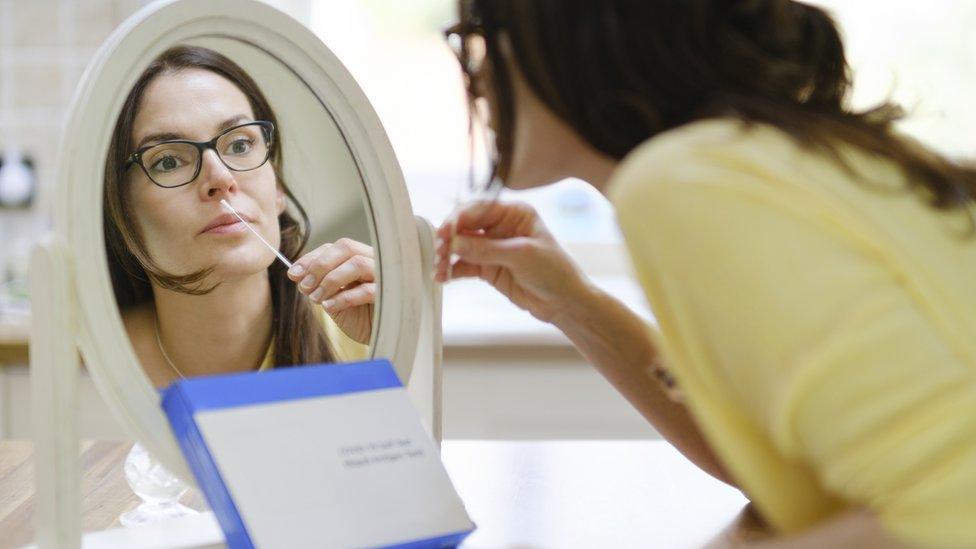Covid: Call to cut self-isolation to five days in Wales
- Published
"The earlier you release people from isolation, the more risk there is that they'll pass it on"
Cutting Wales' Covid self-isolation period to five days would help Labour ministers "atone for the damage" they have done to business, opposition Tories have said.
The party has joined calls for Wales to adopt England's new rules.
A charity boss said cutting the isolation period would help people return to work more quickly.
Wales' chief medical officer (CMO) said nations that took a more precautionary approach have seen better Covid rates.
Dr Sir Frank Atherton said ministers would look at whether they should change the self-isolation rules this week.
Wales case rate has fallen to the lowest level since 18 December - 650.02 cases per 100,000 people.
The Welsh Conservatives have been critical of Mr Drakeford's handling of the Omicron wave, and argued against new restrictions imposed during the winter.
Health spokesman Russell George said: "With the booster jab rollout so advanced, the need to keep public services staffed, and the increasing desire to move to a point where we live with the virus, the time for cutting the self-isolation has come.
"We've already seen Labour's botched over-reaction to Omicron and how that has impacted businesses. By cutting the self-isolation period, they can start atoning for the damage they have done."

'It's a struggle'

Lakshmy Pengelly said any reduction in the isolation period would be a help
Care home owner Lakshmy Pengelly backed cutting the isolation period from seven to five days.
Ms Pengelly, owner of Ashley Court Care, in Llanelli, Carmarthenshire, said the home was dealing with three to four staff testing positive every week.
"You're losing batches of staff each week and then having to scramble around changing roles," Ms Pengelly said.
She described it as "a struggle", but said the care home had managed to continue providing the basic service levels required to keep people safe.
She would "definitely" welcome a reduction in isolation, adding: "Anything less than what it is now would be a help.

Rhun ap Iorwerth, health spokesman for Plaid Cymru, said his party wanted to see the self-isolation time reduced, but it "must be led by the evidence that it is safe to do so, rather than pressure from political opportunists".
A charity that gives care and support to people with learning difficulties, Perthyn, is also asking for changes.
It employs about 850 staff, providing support for more than 250 people across Wales and the east Midlands, according to its website.
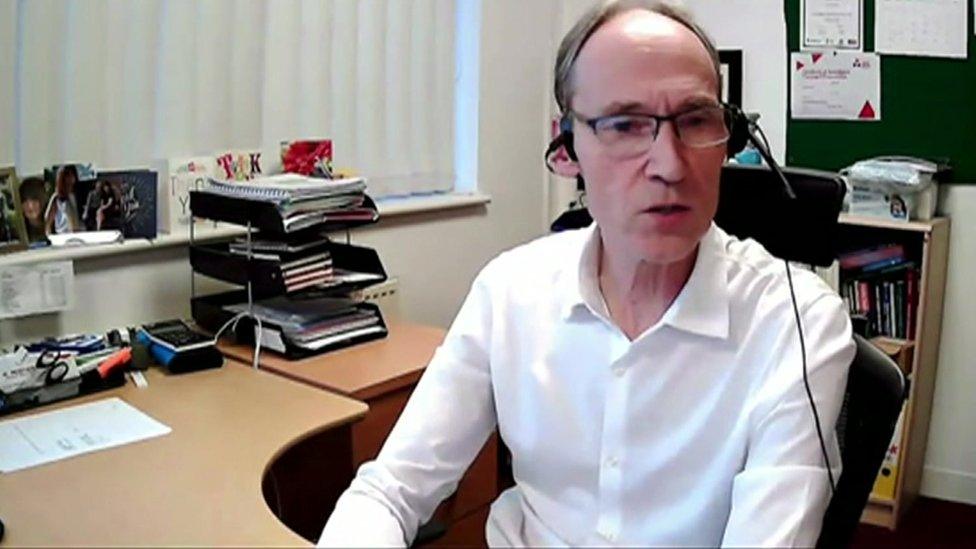
"Getting staff back has been an absolute priority", says Perthyn chief executive Steve Cox
Boss Steve Cox said January had been the most challenging period in the pandemic and said "it would be really helpful if we were able to get staff back as quickly as possible and we want to do that in a way that is safe for them and safe for the people they support".
"Given there's a criteria of having two negative tests to come back, we feel that is enough of a safeguard," he added.
Announcing the changes in England, UK Health Secretary Sajid Javid said UK Health Security Agency data showed that two-thirds of positive cases were no longer infectious by day five.
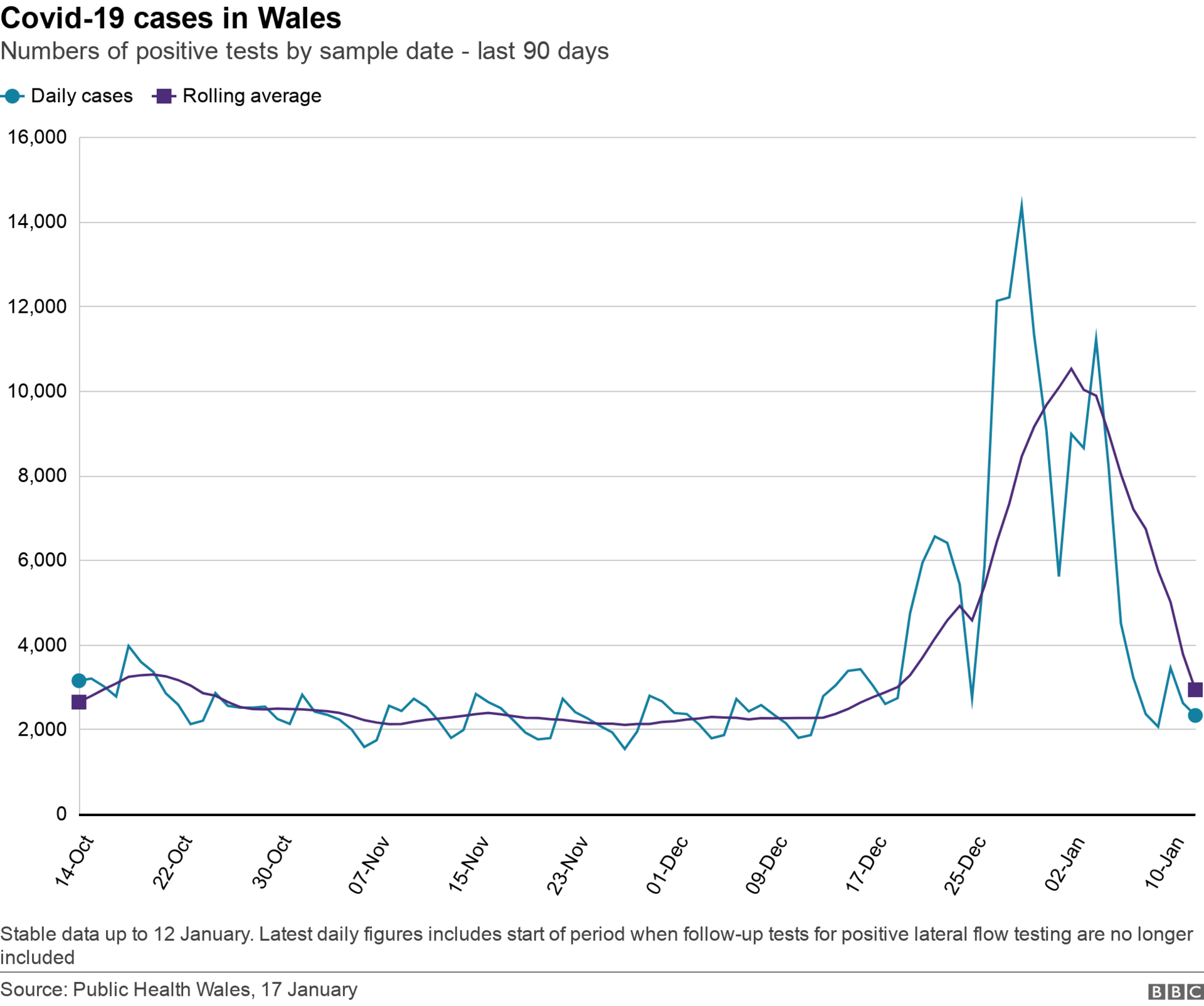
Decision expected in Wales this week
Jane Dodds, Welsh Liberal Democrat leader, said her party would also cautiously welcome the isolation period being cut, but sought a guarantee from ministers that it would change it back "if case rates dramatically increase and the evidence warrants it".
Dr Sir Frank Atherton, Wales' CMO, said there was a "trade-off" between the economic benefits of reducing the isolation time and the risk you face by reducing it.
"If everyone was to be released on day five after they tested positive or developed symptoms or coronavirus, then about 30% of people would still be infectious," he told BBC Radio Wales Breakfast.
"That can be reduced if we if we use lateral flow test sequentially on the two days before release.
"But whatever you choose to do, the risk of infectious people in the community does increase if you reduce the number of days, so that's advice that we'll be putting up to ministers this week."

Is a reduction to self-isolation period safe?
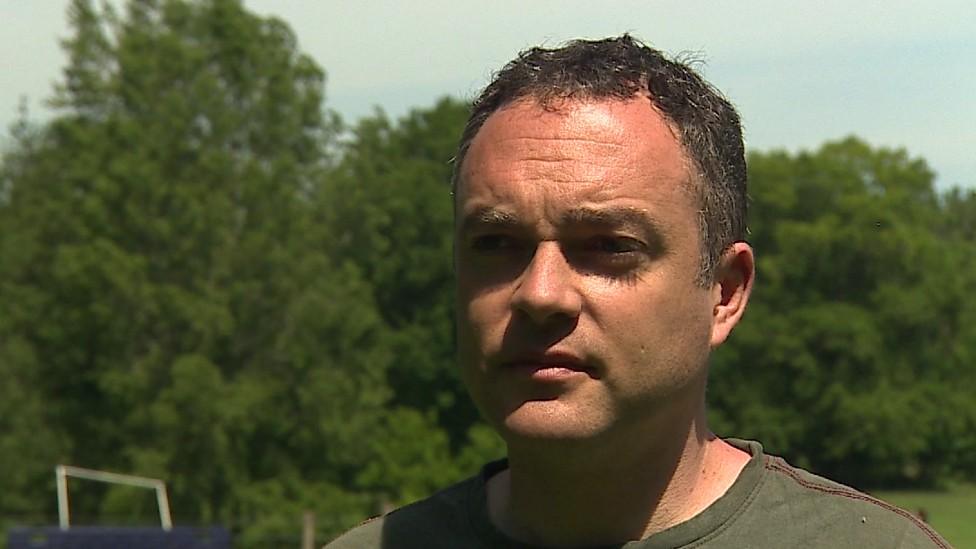
Virologist Richard Stanton warned Omicron could stay in the body longer than other forms of the virus
Cardiff University virology reader Richard Stanton said Omicron could stay in the body longer than previous variants.
With the Alpha and Delta variants, he said infected people continued producing the virus for two to three days after showing symptoms.
"We are getting data through which suggests that Omicron maybe in your nose and mouth for longer," explained Dr Stanton.
"If we look at day six, after you start having symptoms, about half of people will still have infectious virus in their mouth and nose at that time."
"It's risky if we just say you can come out of your self-isolation after five days. The important point is that it's being combined with lateral flow tests."

Responding to Conservative criticism, the CMO said UK nations that took a more precautionary approach to Omicron have seen lower rates than England.
"If we look at our rates of hospitalisation, they'll be lower," he said.
"There's good evidence to suggest that the measures we put in place were appropriate and have actually helped to save people from harm and save lives."
From Monday, people in England will be able to leave isolation after negative lateral flow tests on days five and six.
Ministers touted the move as a way to reduce staffing pressures in some sectors.
The self-isolation period was previously cut from 10 to seven days, and that is still the case in Wales.
On Friday, Mr Drakeford said: "We will study whatever evidence is now available and if we think it is safe, if our chief medical officer and scientific adviser say to us that we can now move down the days in a way that doesn't cause risk to others, of course that's what we will do.
"But we are yet to see that evidence or to get that advice."
- Published15 January 2022

- Published27 May 2022

- Published14 January 2022

- Published13 January 2022
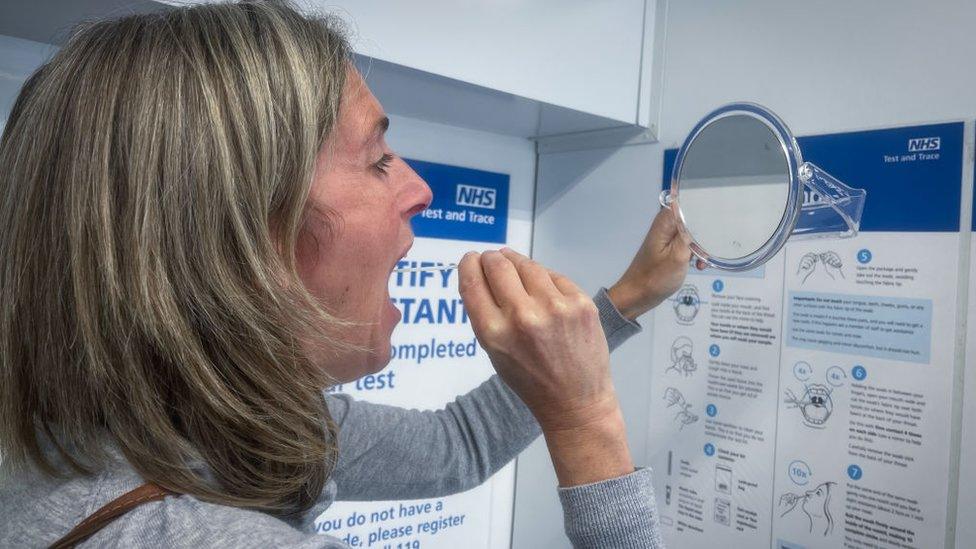
- Published30 December 2021
